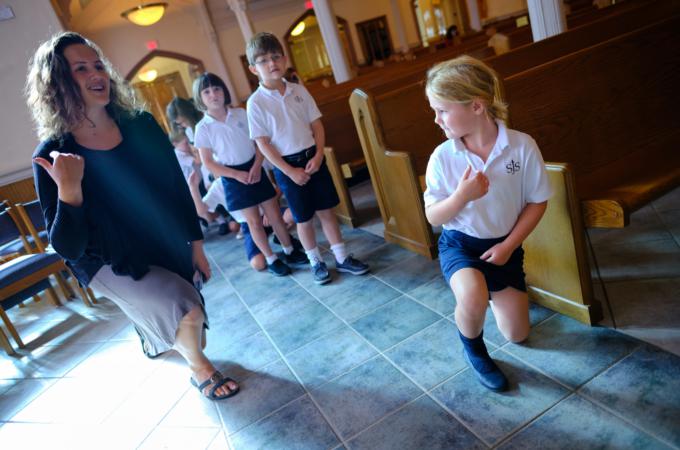Go further with faith
Management guru Peter Drucker urged companies to reflect upon a simple but profound question: "What business are we in?" This question is a good one for our Catholic schools as well.
Simply put, I believe we are in the business of drawing children closer to God and saving souls.
Sure, we, parents and children have other aspirations too: preparing a child to be college- and career-ready; providing opportunities for sports; making kids more prepared for technology; socialization; and so forth. I encourage all of this.
But, by making our pursuit of those laudatory -- but ultimately secular -- goals more important than faith, some Catholic schools risk becoming simply viewed as a more expensive alternative to tuition-free district and charter schools.
Simply put, the secret sauce of Catholic schools is that they are Catholic. We can go further with faith.
Why do I raise these distinctions? Because "what business we are in" has profound implications for the design and management of our Catholic schools.
First, a recent Pew survey suggests that the Catholic Church has done a poor job educating the faithful about basic facts of Church teaching, with many Catholics shockingly ignorant about the Eucharist and many key moral teachings.
Second, over time, because we have been focused on other things, we even let fade away a long-standing requirement that teachers of religion in our schools to be Catholic. Most are, but many are not. This is being changed. This doesn't mean that non-Catholics can't teach in our schools; they can. But we shouldn't let non-Catholics teach religion anymore than you would allow an unqualified doctor to perform medicine.
Third, if many teachers are ill-equipped to pass on our faith, we need to do a better job preparing them and also to give them the educational materials (including quality textbooks) they need to do the best job possible.
Fourth, in many dioceses, the trend is to take parish schools away from pastors under the guise of professionalization. This is a huge mistake. Admittedly, pastors are overextended, with many covering two to three churches in addition to overseeing schools. But, pastors need to be more -- not less -- involved in schools. At a minimum, pastors must be involved and present in our schools to ensure our schools are passing on the Catholic faith.
Fifth, Catholic schools always have accepted non-Catholic students -- rare among major faiths in accepting large numbers of children of other faiths. But we should not perform this public service at the cost of giving up our own faith.
We respect other faiths deeply, but we should not walk away from believing that every child was created in the image of God, serving as witnesses to our Catholic faith, and sharing our faith through prayer, confession, Masses and eucharistic adoration.
Lastly, all students need to know the central role the Catholic Church has played in Western culture, including art, music, architecture, law, philosophy, and, yes, even science. And they should be aware -- notwithstanding the sex abuse scandal -- that there is no part of the globe one can go where the poor are being served without running into services or missions provided by the Catholic Church.
Let no one forget that the world would be a much darker place were it not for the existence of the Catholic Church and the teachings and inspiration of Jesus Christ.
In sum, while I want every child to get into the best college or career track they can, it is more important that we help parents raise faithful children who are morally virtuous and serve as witnesses to our faith in all its glory. That's our secret sauce.
Please let me know what you think. I may be reached at: Thomas_Carroll@rcab.org and followed on Twitter at: @BostonCathSupt.
- Thomas Carroll is superintendent of schools for the Archdiocese of Boston.



















